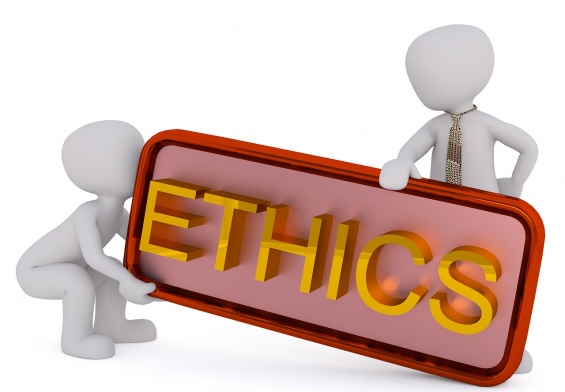In the competitive landscape of Google search results pages (often referred to as SERPs), a top ten (or page one) ranking can literally make your brand. It all but guarantees that you will stand out to your target audience and potential customers will click through to your website. But what happens when a competitor gets wind of your success and tries to piggyback onto your brand? When one company uses another company’s brand name in their Google Ad campaigns or as part of their search engine optimization (SEO) efforts, it brings up a whole host of legal as well as ethical dilemmas.
Digital Marketing’s Advantage Over Traditional Advertising
When the internet was just getting started, digital marketing was more or less straightforward. A company would put together a website with enough information about their products to inform prospective buyers. As online ads started to become more common, the benefits were clear immediately, Digital advertising could reach target audiences directly instead of the blanket approach of TV commercials or radio ads casting a net wide enough to lure in a few prospective customers.
Digital marketers, for example, could focus on a geographical area or a specific demographic who would be more likely to use a company’s products. As digital advertising matured, so did the ability to use advertising budgets to get the best return on investment.
Value of Keywords
By adding relevant keywords to their website content, companies help internet users to find them more easily. Oftentimes, companies hire digital marketing agencies to select keywords that will optimize the amount of clicks their site receives. When someone uses a search engine, he or she usually clicks on the advertisements or organic results that are most relevant to their search. The odds of getting that click increase the higher a website ranks for relevant searches.
Trading on Competitors’ Success
In recent years, the online advertising landscape isn’t as straightforward as it used to be. Nowadays, brands often try to capitalize on a competitor’s success by using their names to rank higher and siphon away visitors through questionable SEO and pay-per-click (PPC) tactics.
Unfortunately, using a competitor’s name as a keyword to display Google ads is a fairly common practice across a broad range of industries. For example, if you enter “Terminix” in your Google search, you might also see ads for Orkin and other competing brands.
Google’s Policy
The short answer to whether Google permits advertisers to bid on a competitor’s name as a keyword is yes. From their point of view, there is nothing to keep one company form using competitors’ trademarks and names as keywords to trigger their Google ads. They have even gone so far as to say that “Google won’t investigate or restrict the selection of trademarks as keywords, even if we receive a trademark complaint.” In other words, Google is content to turn a blind eye to the practice and let competing brands duke it out for themselves if they choose.
Court Cases Favor Unscrupulous Advertisers
To add insult to injury, the cases that wind up in court tend to be decided in favor of unscrupulous advertisers. Although Google has been sued by some trademark holders in the past few years, most lawsuits pit the trademark holder against the advertiser.
For instance, in New Jersey in 2018, the law firm of Helmer, Conley & Kasselman sued the two-lawyer firm, Hark & Hark for using Google AdWords to poach prospective clients. Specifically, Helmer alleged that Hark was bidding on phrases and keywords such as ‘helmer, helmer conley, helmer law office and other related terms so that a Google search for such terms would display ads for Hark’s law firm. They also claimed that Hark used Helmer’s firm name in their ad copy. If true, Hark’s actions appear to be a deliberate attempt to mislead consumers.
Initially, the New Jersey Court sided with the plaintiffs and issued a temporary restraining order and preliminary injunction that banned Hark & Hark from any marketing on Google Ads.
In August of that year, however, the plaintiffs voluntarily dismissed the lawsuit. Hark & Hark were issued a permanent injunction to stop using such marketing tactics and provided a sworn declaration of cancellation for use of the search terms and keywords. Unfortunately, cases like these illustrate the harsh reality that many companies face. While many different businesses including law firms have tried to bring lawsuits against competitors for competitive keyword targeting, they have rarely been successful. More often than not, courts tend to rule on the side of the advertiser.
Conclusion
At the very least, competitive keyword advertising with the intent to deceive consumers is clearly unethical. Trading on a more established competing brand’s name to lure in potential customers is a shady business practice which violates the spirit, if not the letter of the law. Moreover, entities like law firms need to be especially vigilant as these kinds of questionable business practices could result in either an ethical or legal complaint against them.
Digital agencies that cater to law firms also need to be aware of the delicate legal and ethical balance law firms must strike when marketing to potential clients. While some companies may regard this type of advertising as an inevitable consequence of doing business in the digital marketplace, it cannot simply be ignored if companies want to maintain their rankings and the integrity of their online brands.




